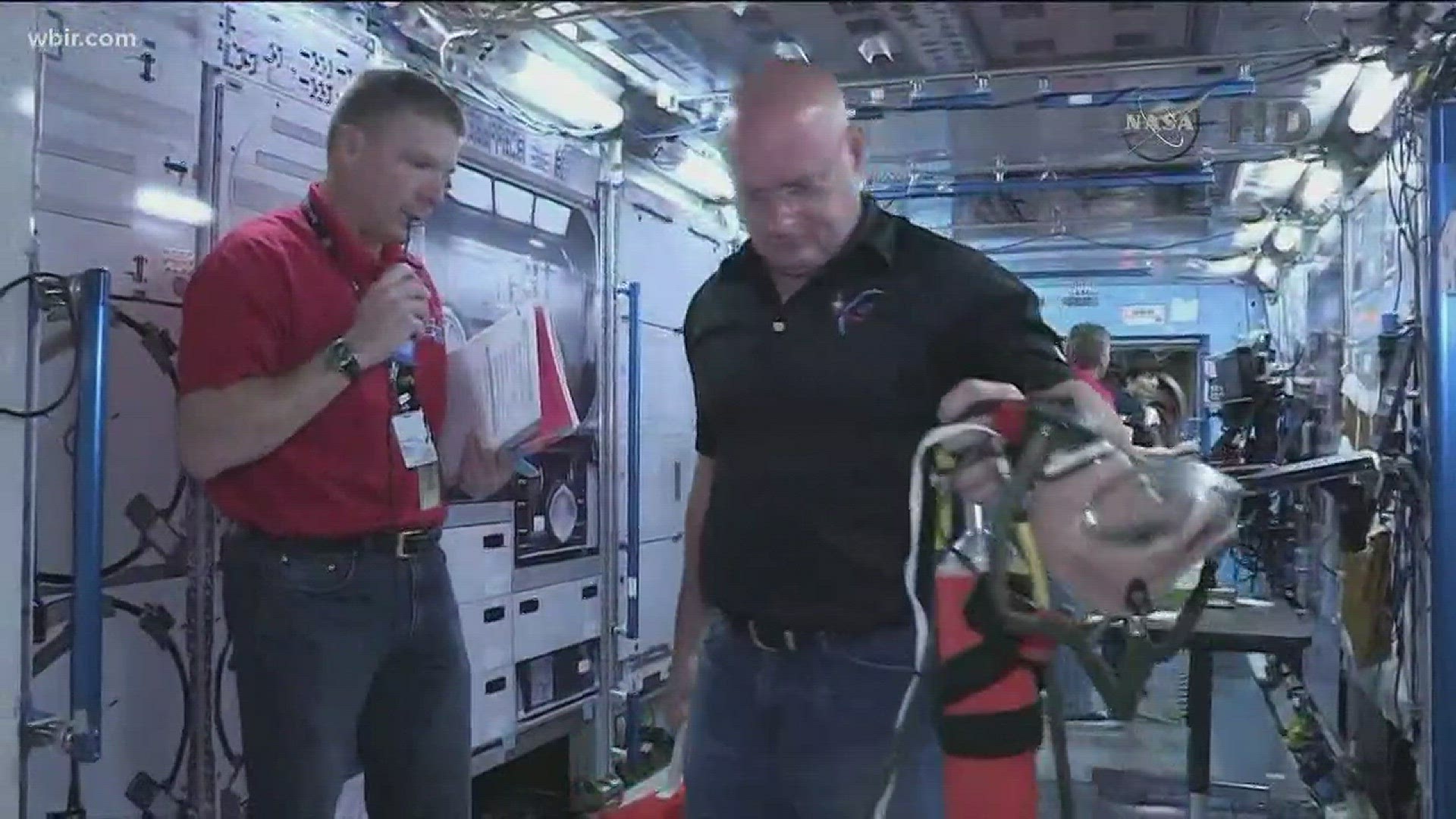The stresses of space travel can alter a person's genetic makeup, NASA says, and the changes can linger even after a return to Earth.
Call it the effects of "space genes," or DNA that doesn't return to normal after a sojourn in space. The January finding was included in a NASA announcement corroborating a number of 2017 preliminary findings on the effects of space travel on the human body.
Investigators found about 93% of astronaut and University of Tennessee alum Scott Kelly's genes returned to normal after spending one year at the International Space Station. But the other 7% remained changed, even after Kelly returned to earth, signaling space travel can have long-term changes on a person's body.
The findings are part of the Twins Study, which seeks to explore the physical and psychological effects of space travel. The experiment involved a number of tests on Scott Kelly and his brother Mark Kelly while Scott was in space and Mark was on Earth.
NASA found spaceflight affects gene expression through oxygen deprivation stress, increase inflammation and changes in nutrients. Those stresses contribute to the existence of hundreds of "space genes," explains Cornell University researcher Chris Mason. The genes, he said, remained disrupted after Scott Kelly's return.
Read more: First results on Scott Kelly after year in space reveal space travel changes DNA
The altered genes are related to Scott Kelly's immune system, DNA repair and bone formation networks, among other bodily functions.
Other than his DNA, the study found most of the biological changes Scott Kelly experienced in space returned to normal after just hours or days on Earth, although some took months.
NASA said the Twins Test helps examine space travel's risks to humans:
Among the other findings of the report include:
- Scott's telomeres on the ends of his chromosomes in his white blood cells lengthened while in space. Researchers said that could be attributed to increased exercise and his reduced calorie intake during flight. The telomeres shortened when he returned. Telomeres typically decrease in length as a person ages.
- Scott's cognitive abilities in speed and accuracy slowed just slightly after the mission, "possibly due to re-exposure and adjustment to Earth's gravity," and his busy schedule after returning to Earth.

